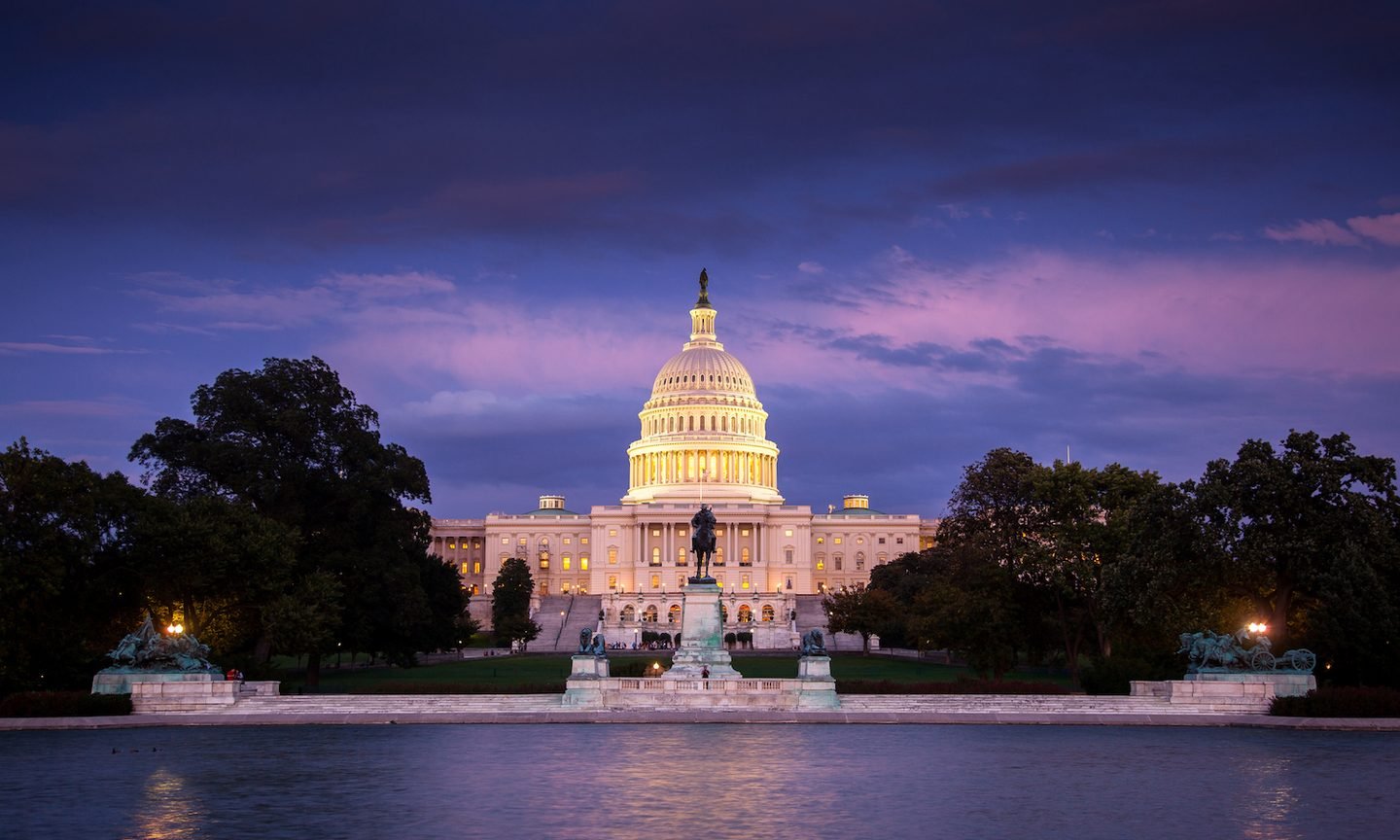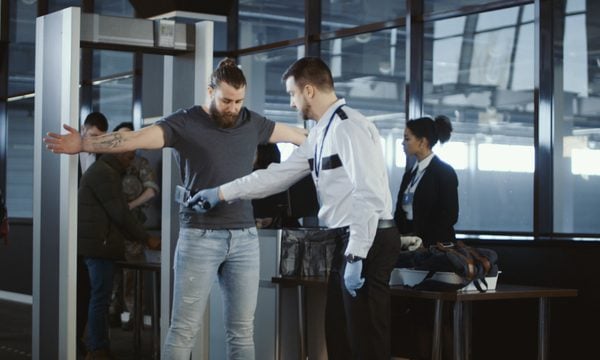How a Government Shutdown Could Affect Travel
TSA workers are impacted in the most recent partial government shutdown.

Many or all of the products on this page are from partners who compensate us when you click to or take an action on their website, but this does not influence our evaluations or ratings. Our opinions are our own.
The U.S. government partially shut down on Feb. 14, 2026, after lawmakers failed to reach a compromise on funding legislation for the Department of Homeland Security. If you have upcoming air travel, this could lead to potential disruptions.
» Learn more: When will the government shut down?
The Department of Homeland Security oversees the Transportation Security Administration and Customs and Border Protection. That means that essential workers — including TSA officers — are working without pay until the shutdown is over. Past shutdowns have led to more federal employee absences, longer security lines and more flight delays.
How would a government shutdown affect air travel?
Air travel should continue as normal during a partial government shutdown. As essential workers, TSA officers are expected to continue to work, but they won’t get paid until the shutdown is over.
As of Feb. 23, 2026, TSA PreCheck, which helps travelers speed through security checkpoints, is still operational. But Global Entry, which allows travelers to pass through U.S. customs quickly, has been paused at some airports, ABC News reported on Feb. 22. DHS first announced that both programs would be paused on Feb. 22, 2026, then quickly reversed course on TSA PreCheck.
As the DHS shutdown drags on, some federal workers may call out sick at higher rates. One day during the nation’s shutdown from December 2018 to January 2019, TSA reported that 10% of its officers were missing work for an unscheduled absence.
The saga forced some airports to close security checkpoints and caused long waits for some travelers.
Air traffic controllers — who were impacted in the 2025 government shutdown — would not be affected by this shutdown, since they fall under the Department of Transportation.
» Learn more: How would a government shutdown affect you?
Can I still get Global Entry and TSA PreCheck during a shutdown?
Applications for Global Entry and TSA PreCheck will remain open during a government shutdown. TSA PreCheck is a fee-funded program, so it will continue to enroll members.
As of Feb. 23, 2026, appointments for Global Entry interviews are still available. But it's unclear if that availability will continue. During the 2018 to 2019 shutdown, Global Entry appointments at some enrollment centers were canceled with no rescheduled date in sight.
Would national parks and passport processing be affected by a shutdown?
In a complete government shutdown, staffing for national parks and passport processing could be affected. However, those services are operated by the Interior Department and the State Department, respectively, so they won’t be impacted by a partial shutdown that’s focused on the Department of Homeland Security.
How to maximize your rewards
You want a travel credit card that prioritizes what’s important to you. Here are some of the best travel credit cards of 2026:
- Flexibility, point transfers and a large bonus: Chase Sapphire Preferred® Card
- No annual fee: Wells Fargo Autograph® Card
- Flat-rate travel rewards: Capital One Venture Rewards Credit Card
- Bonus travel rewards and high-end perks: Chase Sapphire Reserve®
- Luxury perks: American Express Platinum Card®
- Business travelers: Ink Business Preferred® Credit Card
Article sources
NerdWallet writers are subject matter authorities who use primary,
trustworthy sources to inform their work, including peer-reviewed
studies, government websites, academic research and interviews with
industry experts. All content is fact-checked for accuracy, timeliness
and relevance. You can learn more about NerdWallet's high
standards for journalism by reading our
editorial guidelines.
NerdWallet's 2026 Best Premium Travel Credit Card
Capital One Venture X Rewards Credit Card 
Travel
Hotel

With a big sign-up bonus, travel credits, high rewards and airport lounge access, this card could be well worth its annual fee — which is lower than many competitors.
More like this
Related articles









